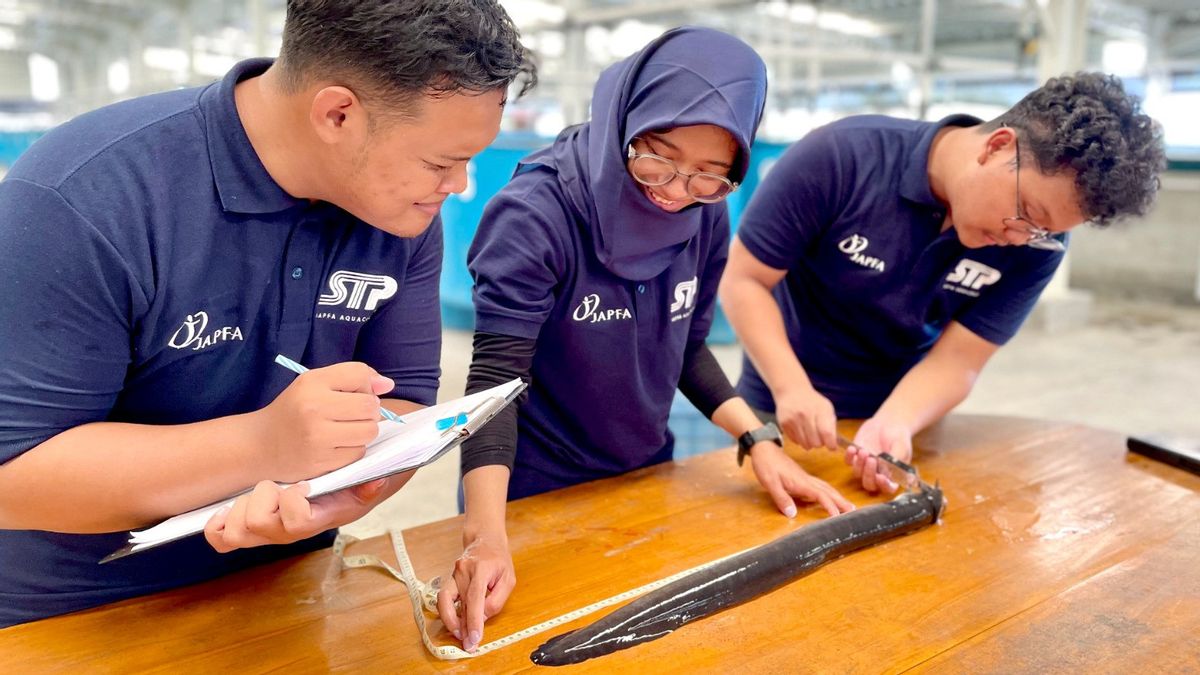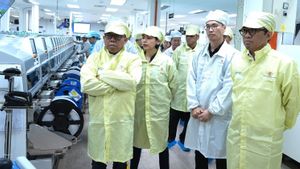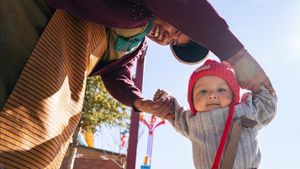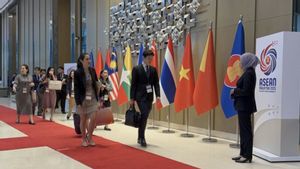JAKARTA - The Aquaculture Research Center (ARC), a state-of-the-art facility founded by PT Suri Tani Pemuka, a subsidiary of JAPFA, recorded a historic moment in the field of water cultivation with its success in the first step of reproducing high-value tropical cyta, Anguilla bicolor. This innovation is the world's first achievement, marking great progress in the management of a sustainable cydat population, which has a positive impact on both commercial cultivation and cydat conservation.
Located in Banyuwangi, East Java, the ARC is known for its research and development in the field of aquaculture, collaborating with leading international institutions such as the Higher Institute of Excellence, the Borneo Marine Research Institute of Universiti Malaysia Sabah (UMS) and Kindai University. Tropical mandate, with the scientific name Anguilla bicolor, is considered a high-valued species due to its enormous demand in the culinary market in Asia and the world. This situation is in great demand because of its delicious taste and high nutritional content, making it an option for premium dishes.
The sustainable cultivation of tropical cydat fish is the answer to growing demand, as well as reducing threats to wild cydat populations, thereby contributing to biodiversity conservation and ecological balance.
The success in the first step in the reproduction of tropical cydat is not only an important achievement in water cultivation, but also shows JAPFA's commitment to sustainability in food production, paving the way for other innovations in the industry.
Along with the decreasing cydat population globally, finding ways to breed a cydat is very important for conservation efforts and commercial goals.
The complex and mysterious cydat life cycle makes cydat reproduction in captivity a big challenge. Sidates travel thousands of kilometers from the freshwater river into the deep sea, so their reproductive conditions are very difficult to mimic outside their natural habitat. To date, cydat cultivation relies on catching young cytats (glassels) in the wild which are then raised to be commercialized. However, this approach is no longer sustainable as it reduces the wild cydat population which is threatened by over catching and the loss of their natural habitat.
The ARC research team together with Prof. Dr. Senoo Shigeharu has successfully overcome this challenge and discovered the first step in the reproduction of tropical cydats in captivity. By utilizing advanced aquatic technology and maintenance methods developed by the ARC, the team managed to hatch 70,000 larvae, with the success of 11 days of larva maintenance. This indicates the potential to produce tropical cyta on a large scale in captivity.
"This achievement is an important milestone in our efforts to manage the cydat population in a sustainable manner, because for the first time we managed to hatch a tropical mandate in a controlled environment," said STP President Director, Ardi Budiono, in a written statement, Tuesday, August 20.
"We believe the ability to reproduce the cydat in captivity will have a significant impact on the aquatic industry, not only in Asia but also globally. To ensure the sustainability of tropical cydats, STP will continue to implement sustainable cydat cultivation practices, conduct various studies on the cydat, and continue to support efforts to increase the cytat population in their natural habitat, as part of our commitment to sustainable water cultivation," he added.
The success of the first step of tropical cydat reproduction in captivity not only shows significant progress in acultural technology, but also provides new hope for the conservation of tropical cydat, Anguilla bicolor, which is currently classified as "Almost Endangered" in the International Union for Conservation of Nature (IUCN) Red List.
By reducing dependence on catching in the wild, this study could contribute to the conservation of tropical cydat populations while at the same time meeting consumer demand which continues to increase responsibly and sustainably. This breakthrough supports the practice of sustainable acculturing that can protect the natural cydat population from over-capture.
As a leading food industry company, JAPFA consistently uses the right cultivation seeds and methodology to ensure the efficiency of animal protein production that is affordable on a large scale in tropical climates. This breakthrough in tropical cydat breeding is in line with JAPFA's commitment to food production that is efficient and sustainable throughout the portfolio of diverse protein products.
"We see an opportunity to apply the principles of livestock cultivation to water cultivation and cydat cultivation, with the aim of increasing efficiency and reducing dependence on glass eels captured in the wild," said President Director of PT Japfa Comfeed Indonesia Tbk and Executive Director of JAPFA Group, Renaldo Santosa.
"By cultivating tropical mandates in captivity, we strive to maintain the survival of the wild cydat population, as well as contribute to biodiversity and ecosystem health. This success is proof of the power of vision, perseverance and innovation, as well as the importance of collaboration between industry and academics in overcoming the challenges of sustainable food production," he added.
The English, Chinese, Japanese, Arabic, and French versions are automatically generated by the AI. So there may still be inaccuracies in translating, please always see Indonesian as our main language. (system supported by DigitalSiber.id)













